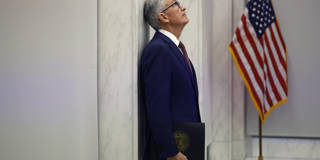OnPoint Subscriber Exclusive
The Big Picture brings together a range of PS commentaries to give readers a comprehensive understanding of topics in the news – and the deeper issues driving the news. The Big Question features concise contributor analysis and predictions on timely topics.

The Revenge of the Inflation Doves
Last month, US inflation fell more than expected, to 3.2% – the first decline in four months – and consumer prices were unchanged, raising hopes that the end of the US Federal Reserve’s monetary-tightening cycle has arrived. But, given the role of pandemic-era supply disruptions in fueling inflation, many are questioning whether the Fed’s huge interest-rate hikes were needed in the first place.
“If anything,” Nobel laureate Joseph E. Stiglitz argues, “disinflation has happened despite central banks’ actions, not because of them.” Rate hikes do not counter the kind of “supply-side and demand-shift inflation” the US has been facing, but they do “inhibit construction” and “make mortgages more expensive,” meaning that the Fed’s actions may well have “slowed the disinflation in housing prices.”
Jayati Ghosh of the University of Massachusetts Amherst echoes this argument, noting that rate hikes were probably unnecessary – “inflation was always going to decline as cost pressures subsided” – and certainly damaging. As she points out, it is developing economies that have suffered the most: “By reversing the flow of capital from the developing world to developed economies,” advanced-economy rate hikes have led to “debt crises and defaults, significant output losses, higher unemployment, and sharp increases in inequality and poverty.”
According to Harvard’s Jeffrey Frankel, however, the Fed does deserve some credit. Yes, a “favorable shift in the aggregate supply relationship should allow for lower inflation at any given rate of economic growth,” but one must ask why, in the US, this shift “resulted in lower inflation, rather than higher GDP growth.” The answer may well lie in the Fed’s rate hikes, without which the US economy “probably would have overheated.”
James K. Galbraith of the University of Texas at Austin is not convinced. In his view, there is no doubt that the “near-consensus” on recent inflation among mainstream economists – that inflation would persist, and even accelerate, without substantial interest-rate hikes – was wrong. The fact that this follows a “long-running series of failures” by economists – “from not foreseeing the 2008 financial crisis to endorsing self-destructive austerity in the 2010s” – suggests that either “mainstream economists need to re-examine their core beliefs, or the profession needs a new mainstream.”